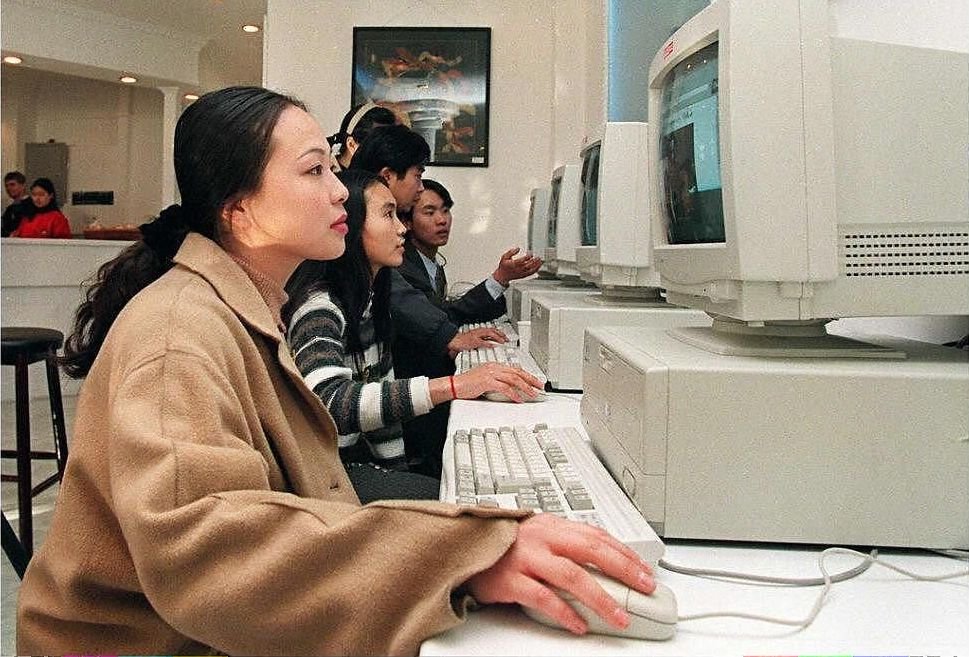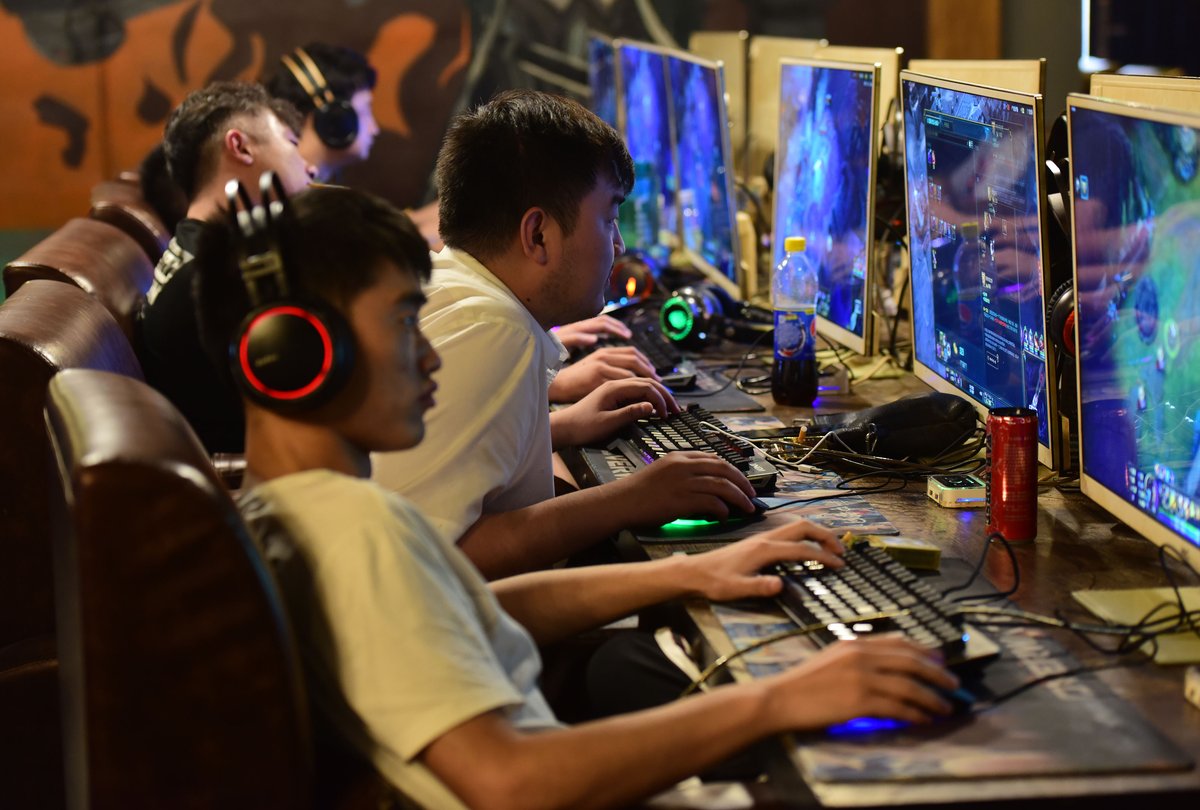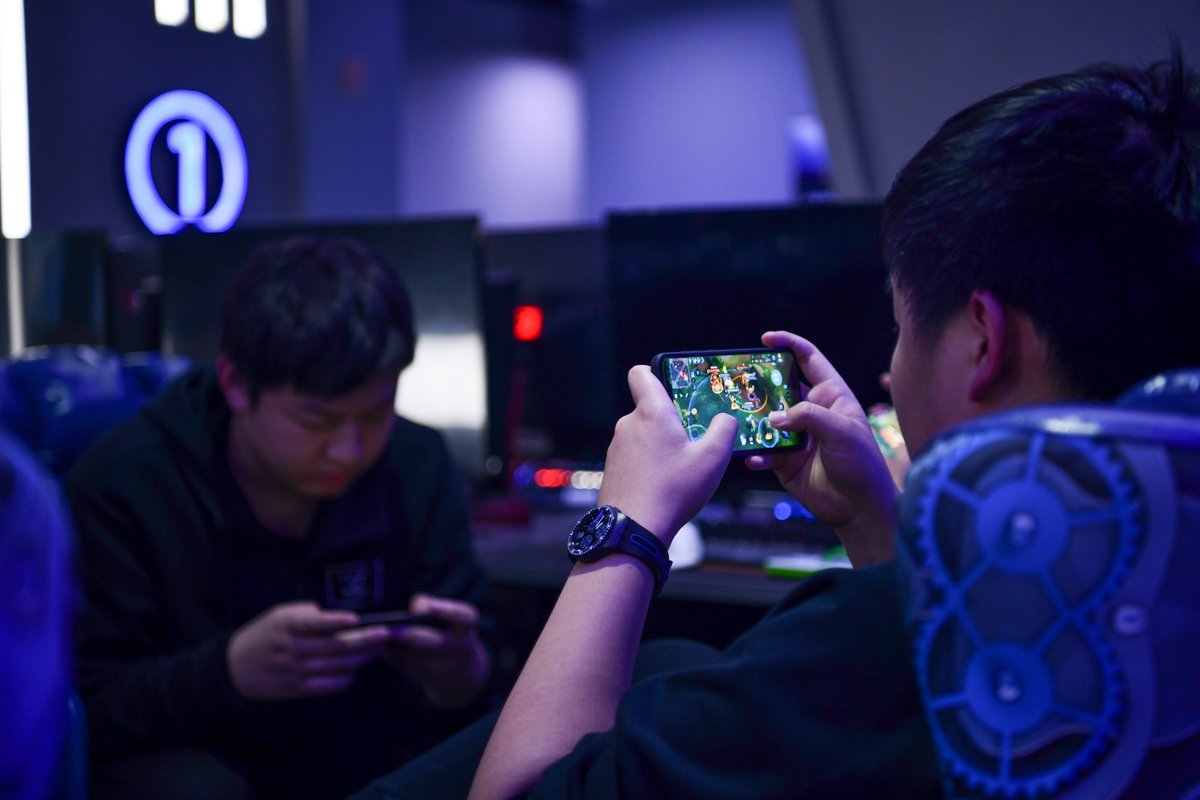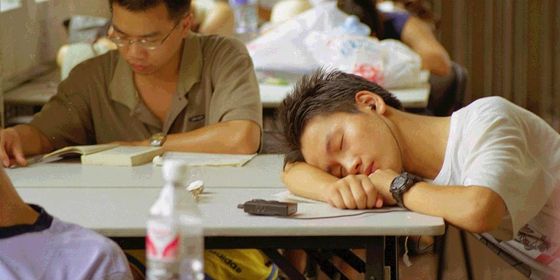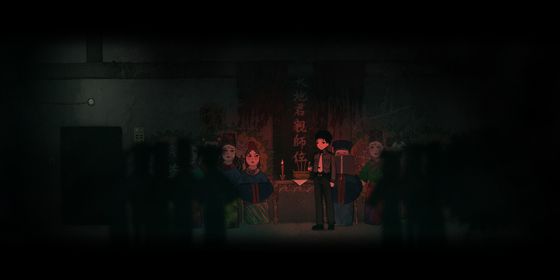Some millennials still visit China’s internet cafes for a nostalgia hit, but that won’t be enough to sustain the “wangba” industry
The pungent smell of cheap cigarettes, instant noodles, and a hint of sweaty socks hangs in the air as Tao turns on a PC in a Beijing internet cafe one Tuesday afternoon in April. “I come here for the atmosphere,” he tells TWOC over the clacking of keyboards, the whir of powerful gaming computers, and the noise of other gamers swearing into their headsets as they fight opponents online.
“Though it’s not really what it used to be,” Tao, who only gave his surname, explains with a lit cigarette in his mouth. “It was a lot more rambunctious back in the day.”
Tao, a millennial “post-’90s” construction worker originally from Hebei province, likes to spend his free time here to get away from the crowded dormitory where he lives with other workers. The room is full of rows of long tables hosting dozens of computer stations where (mostly male) patrons can play modern, graphically demanding games. Tao sits down at one of the sophisticated gaming PCs, but then starts up a low-fi 2D game he usually plays for free on his phone.
For many Chinese born in the 1980s and ‘90s like Tao, internet cafes, or wangba (网吧) in Chinese, with their distinctive atmosphere and memorable sensual experience, were an important part of their youth. This was where they would come to read blogs at a time when the medium was booming, as bloggers like Han Han wrote for recently online audiences with a blend of sarcasm, social commentary, and humor. They could also play games with friends, message each other on QQ, get away from their parents or university dormitories, and while away hours of downtime.
But as smartphones and mobile internet became more accessible in the 2010s, wangba began to lose their appeal after peaking at around 150,000 licensed venues across the country. Some have managed to survive as versatile social spaces adaptable to different needs: playing video games, spending a night for little money, making quick changes to a presentation before a job interview, watching movies with friends, and, most importantly for Tao and many others of his generation, serving as a spot for millennials to get a nostalgia hit from their childhood.
China first connected to the worldwide web in 1994 and wangba began appearing in Chinese cities shortly after. Going online was expensive in the early days: as much as 30 yuan for one hour. That meant 24 hours surfing the net in a wangba would have cost more than the average monthly income at the time.
By the early 2000s, wangba could be found in most Chinese cities, and prices for users had dropped considerably. “The hourly fee was 8 mao then,” remembers Liu Ming from Nanchang, Jiangxi province, who was born in 1987 and started going to wangba during his high school years. “If you wanted to spend the night, it was a flat fee of 5 yuan.” The industry boomed in the 2000s, with over 100,000 registered wangba by 2002 according to an industry report by iResearch.
That changed dramatically in June 2002, after an arson attack at Lanjisu wangba in Beijing left 25 people dead. The unlicensed wangba in Beijing’s university district was crowded mainly with students when a group of teenagers started a fire there at 2:40 a.m., allegedly as revenge against the owner who had previously denied them entry because of their age. The wangba had barred windows, no fire exits, and a single door which was bolted shut, contributing to the death toll.
Authorities responded by tightening control over internet cafes. Police began to enforce rules prohibiting under 18s from visiting through spot checks on venues. New licenses for wangba were suspended, first in Beijing and then across the country in a freeze that lasted until around 2013.
“This is why so-called ‘dark wangba’ started popping up,” says 28-year-old Wang Dong, referring to unlicensed and unregulated internet cafes. “These would often be opened in hidden spots,” Wang, who makes videos about gaming and internet culture on video-streaming platform Bilibili for 1.7 million subscribers, tells TWOC. “I also used to visit them when I was underage.”
The illegality of these wangba didn’t discourage customers. Xu Ruqing, a 28-year-old Beijing native who calls wangba a kind of “spiritual home” for his generation, tells TWOC he used to spend hours at an unlicensed wangba hidden behind the morgue of a hospital in Beijing’s Fengtai district. “There was the morgue out front, but on the other side there was this rear door. There were only five computers inside and the guy running it was actually living there…Places like that were invisible to the police.” Patrons used to pay 3 yuan to play on one of the older computers, or around 20 yuan to spend the night playing games like Crossfire, a first-person shooter from 2007, he explains.
The infamously smoky environment of wangba meant young patrons would sometimes change their clothes after visiting so their parents wouldn’t smell the cigarette smoke and know where they had been, remembers Xu.
Ma Xu, another millennial from Beijing, started going to unlicensed wangba around 2007. “I had just started middle school,” he recalls. “Of course, a lot of parents knew about these places. They would often come and take their kids home. The guy running the place would sometimes let us know that parents were coming so we had time to run.”
As the state tried to regulate wangba more tightly, many parents also tried to clamp down on their offspring’s habit. Internet addiction camps proliferated as panic about the alleged effect of the internet and online video gaming on children spread in the media and society. Some “received electric shock treatment, scary as hell. The darkest chapter in the history of gaming in China,” remembers Xu.
Yang Yongxin, a controversial clinical psychiatrist born in 1962 and head of an infamous internet addiction treatment center in Shandong province, was one of the proponents of so-called electroconvulsive therapy to treat video game and internet addiction, reportedly using it on thousands of children and young adults, many against their will, before the practice was banned by the Ministry of Health in 2009 and later by law in 2017.
Neither Xu nor Ma suffered such “treatment,” and they remember Yang more as a figure of ridicule and meme-fodder in the wangba community than as a menace (Xu recalls he was dubbed the “Tesla Trooper,” a reference to a unit from popular PC game Command & Conquer 3 that carries electric shock guns). But both still drifted away from wangba, now only visiting occasionally to remember the good times.
Likewise, the wangba industry has begun to cool. While business licenses were issued again beginning in late 2013, leading to a brief rise in the number of licensed venues, the number has declined for years since. Over 12,000 wangba-related companies went out of business in 2020 due to the pandemic according to a March 2021 article by China Xiaokang magazine, which cited numbers from business database Tianyancha.
The Beijing wangba frequented by Tao was forced to close for two years during the pandemic, but business is picking back up again, the manager there tells TWOC. A new generation of clientele may be emerging, some of them enticed by stories of wangba from the 1990s and early 2000s that have created a kind of intergenerational myth around these places. “As soon as I turned 18, I went,” 23-year-old university student Wang Hanchen from Hangzhou, Zhejiang province, tells TWOC. “As a boy, when you turn 18 you are supposed to get baptized at a wangba,” he jokes.
Venues are adapting to attract new customers like Wang. Some are doubling down on gaming, marketing themselves as e-sports centers with updated amenities like private rooms featuring high-end equipment for people playing online shooters and other popular team-based games.
Others are expanding beyond just internet use and gaming. “We’ll be refurbishing the place in summer this year, adding some rooms for mahjong and other games, that’ll hopefully attract some more people,” says the manager at a dingy basement wangba north of Sanlitun, a shopping and nightlife hub in Beijing.
Business is slow when TWOC visits on a Monday afternoon in April. For now, this licensed venue evokes the memories of illicit wangba so many millennials remember with fondness: It is gloomy, some of the PCs are aged, some tables dirty. That familiar smell of cheap cigarettes and instant noodles lingers in the air as gamers furiously tap at their keyboards and yell during matches of League of Legends and other popular games.
After 11 p.m. when customers can pay a flat fee of 51 yuan to spend the night, more people start arriving. Some of them check in and retreat to the darker corners of the wangba with the most basic PCs available to go straight to sleep, while others bring drinks, food, and play throughout the night.
Whether patrons looking for a cheap place to sleep, nostalgic millennials escaping the harsh realities of adult life, or the occasional teenager seeking their wangba baptism are enough to financially sustain these spaces remains to be seen. The manager here is pessimistic about a return to the glory days of wangba in the 1990s and 2000s though: “The wangba business isn’t doing well. Kids these days just play with their phones.”
Net Nostalgia: Remembering the Glory Days of China’s Internet Cafes is a story from our issue, “After the Factory.” To read the entire issue, become a subscriber and receive the full magazine.







